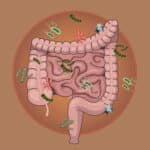What Happens When Your Thyroid Hormones Stop Working?
Nearly every cell in your body has receptors for T3 (triiodothyronine), the active form of thyroid hormone. This extensive distribution of T3 receptors on virtually every cell in your body, highlights its critical role in regulating essential functions across various organs and tissues. From your metabolism and cardiovascular health to brain function and mood regulation, T3 is a key player in maintaining overall health and vitality – this may also be why your feeling chronically fatigued, moody, and you aren’t feeling rested when you are getting plenty of sleep.
In this article, I’ll explore exactly what T3 does for your body, breaking it down into specific functions that are both scientifically grounded and easy to understand.
T3 and Metabolism: Powering Your Body
1. Regulating Basal Metabolic Rate (BMR)
T3 is often referred to as the “metabolism hormone” because it directly influences your basal metabolic rate (BMR)—the amount of energy your body uses at rest.
- Mitochondrial Activity: T3 acts on mitochondria, the powerhouses of your cells, to enhance energy production. It increases the number and efficiency of mitochondria, allowing cells to produce ATP (adenosine triphosphate), the molecule that powers virtually all cellular processes.
- Calorie Utilization: By stimulating metabolic pathways, T3 ensures that your body efficiently burns calories for energy rather than storing them as fat.
Studies have shown that hypothyroidism, characterized by low T3 levels, often leads to a slower metabolism and symptoms like fatigue, weight gain, and cold intolerance. Conversely, hyperthyroidism, marked by excess T3, results in an overactive metabolism, causing weight loss and heat intolerance. (Yen, 2001)
T3 and Growth: Building the Foundation
2. Essential for Growth and Development
T3 is indispensable for proper growth and development, especially during fetal and early childhood stages.
- Skeletal Development: T3 stimulates bone growth and mineralization, ensuring the skeletal system develops properly. Children with thyroid hormone imbalances may experience delayed or stunted growth.
- Brain Development: T3 is critical for the maturation of neurons, the formation of synapses (connections between neurons), and myelination (the protective sheath around neurons). These processes are vital for cognitive function and sensory-motor skills.
Maternal hypothyroidism during pregnancy can lead to impaired fetal brain development, emphasizing the importance of T3 for early-life growth. (Bernal, 2007)
T3 and Thermogenesis: Regulating Body Temperature
3. Generating Heat Through Thermogenesis
One of T3’s most well-known functions is its role in thermogenesis, the process of heat production in the body.
- Increasing Cellular Metabolism: T3 enhances the metabolic activity of cells, causing them to produce more heat. This is why individuals with hypothyroidism often feel cold and those with hyperthyroidism tend to feel overheated.
- Brown Fat Activation: T3 activates brown adipose tissue (a type of fat specialized in heat production), further contributing to body temperature regulation.
Thermogenesis is a critical survival mechanism, especially in cold environments, underscoring T3’s role in maintaining core body temperature. (Silva, 2006)
T3 and Protein Synthesis: Repairing and Building
4. Stimulating Protein Production
T3 regulates protein synthesis, impacting tissue repair, muscle maintenance, and enzyme production.
- Muscle Health: T3 promotes the synthesis of structural proteins, which are necessary for muscle growth and maintenance.
- Enzyme Activation: Many enzymes involved in metabolic pathways require T3 for their synthesis and activation.
When T3 levels are imbalanced, muscle weakness, slow wound healing, and other signs of reduced protein production can occur.
T3 and Cardiovascular Health
5. Supporting Heart Rate and Circulation
T3 is vital for maintaining a healthy cardiovascular system:
- Heart Muscle Contraction: T3 increases the strength and efficiency of heart muscle contractions, ensuring that blood circulates effectively.
- Blood Vessel Relaxation: It also promotes vasodilation (widening of blood vessels), which improves blood flow and reduces vascular resistance.
Low T3 levels are associated with bradycardia (slow heart rate), while high levels may cause tachycardia (fast heart rate). Maintaining optimal T3 is critical for cardiovascular health. (Klein & Ojamaa, 2001)
T3 and Brain Health
6. Enhancing Cognition and Memory
T3 is a cornerstone of brain function, influencing cognition, mood, and neural health throughout life.
- Neurogenesis and Synaptic Plasticity: T3 regulates the expression of genes involved in the growth of new neurons (neurogenesis) and the formation of synapses, which are essential for learning and memory.
- Neurotransmitter Regulation: T3 influences the production and activity of neurotransmitters like dopamine, serotonin, and norepinephrine, which play roles in focus and mental clarity.
Research has linked hypothyroidism to cognitive decline, memory issues, and “brain fog,” while adequate T3 levels are associated with improved cognitive performance. (Smith et al., 2002)
7. Regulating Mood
- Impact on Serotonin: T3 boosts serotonin production, promoting emotional well-being. Low T3 levels have been associated with depression and anxiety.
- Mood Disorders: Some studies suggest that T3 supplementation can enhance the effectiveness of antidepressants in individuals with mood disorders, particularly treatment-resistant depression. (Baumgartner et al., 1994)
8. Neural Development and Protection
- Fetal Brain Development: T3 is critical during pregnancy for developing neurons and glial cells (support cells in the brain).
- Protecting Against Neurodegeneration: In adults, T3 supports cell repair and antioxidant defenses, reducing the risk of neurodegenerative conditions like Alzheimer’s disease.
Imbalances in T3 can impair brain function at any stage of life, from development to aging.
The Far-Reaching Impact of T3
T3’s extensive distribution of receptors throughout the body means that even small imbalances can have widespread effects, including:
- Energy Levels: Low T3 can lead to fatigue and lethargy, while high levels may cause restlessness and insomnia.
- Mood and Mental Clarity: T3 imbalances can contribute to brain fog, memory problems, and mood swings.
- Weight Management: T3 is a key regulator of how your body burns calories, influencing weight gain or loss.
Addressing T3 Imbalances
If T3 plays such a vital role, what can you do to ensure optimal levels?
1. Comprehensive Thyroid Testing
Relying solely on TSH (thyroid-stimulating hormone) isn’t enough. A complete thyroid panel should include:
- Free T3
- Free T4
- Reverse T3
- Thyroid antibodies (TPO and TgAb)
This comprehensive approach provides a clearer picture of thyroid health.
2. Supporting T4-to-T3 Conversion
Since T3 is produced primarily through the conversion of T4, optimizing this process is key:
- Nutritional Support: Ensure adequate intake of selenium, zinc, and iodine, which are essential for the enzymes involved in T3 production.
- Reduce Stress: Chronic stress elevates cortisol, which can impair T4-to-T3 conversion and increase reverse T3.
3. Lifestyle and Medical Support
- Consider medications that include T3, such as desiccated thyroid or T3/T4 combination therapies, if your body struggles to convert T4 into T3.
- Adopt a thyroid-friendly diet rich in whole foods, healthy fats, and anti-inflammatory nutrients.
Conclusion
T3 is a fundamental hormone that affects nearly every cell in your body. From metabolism and cardiovascular health to brain function and mood regulation, T3 is essential for maintaining vitality and well-being. Small imbalances in T3 can have far-reaching effects, making it critical to address thyroid health comprehensively.
By understanding T3’s roles and how to optimize its levels, you can take proactive steps to improve your energy, mood, and overall health.
- Yen, P. M. “Physiological and molecular basis of thyroid hormone action.” Physiological Reviews. 2001;81(3):1097–1142.
- Bernal, J. “Thyroid hormones and brain development.” Vitamins and Hormones. 2007;75:143–177.
- Silva, J. E. “Thermogenic mechanisms and their hormonal regulation.” Physiological Reviews. 2006;86(2):435–464.
- Klein, I., & Ojamaa, K. “Thyroid hormone and the cardiovascular system.” New England Journal of Medicine. 2001;344(7):501–509.
- Smith, J. W., et al. “Cognitive deficits in hypothyroid patients and the response to treatment.” Thyroid. 2002;12(6):421–425.
- Baumgartner, A., et al. “T3 augmentation of tricyclic antidepressants in treatment-resistant depression.” Journal of Affective Disorders. 1994;32(2):89–95.
Enjoying this content? Sign up for updates... It's FREE!

















